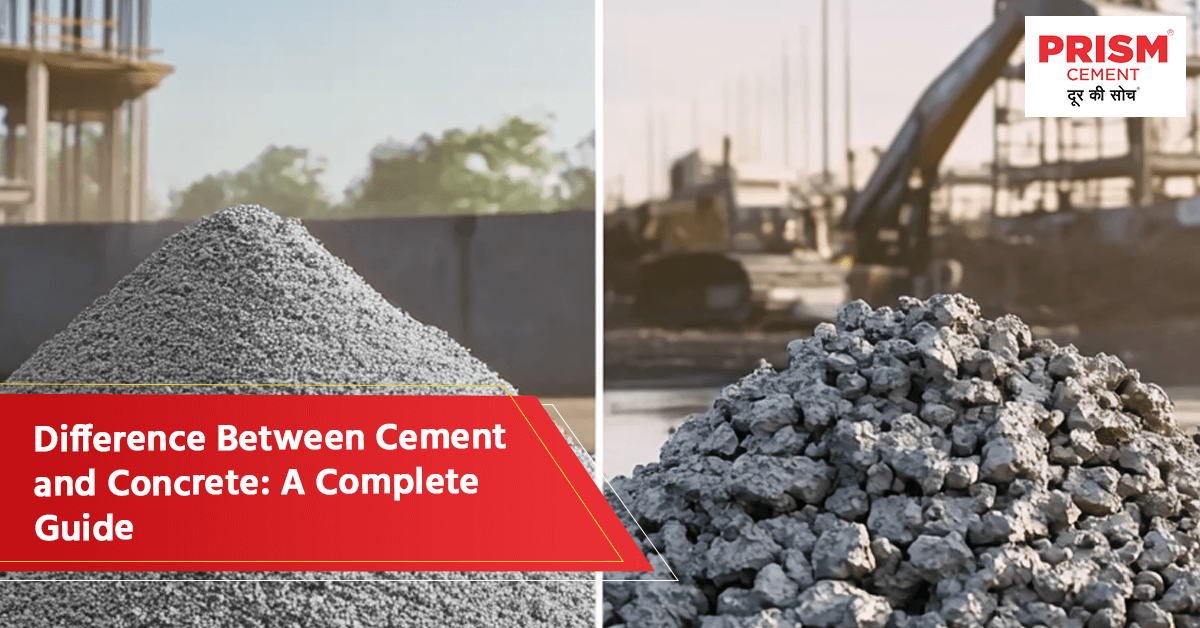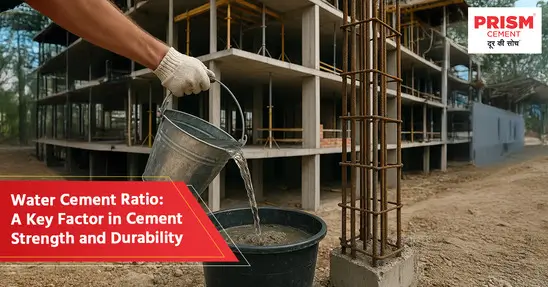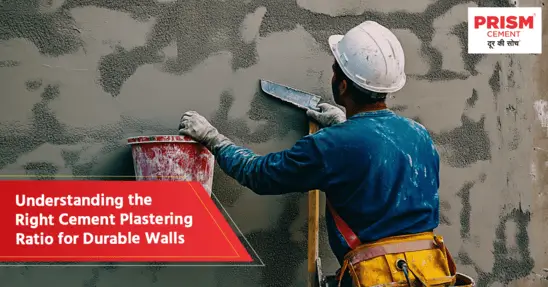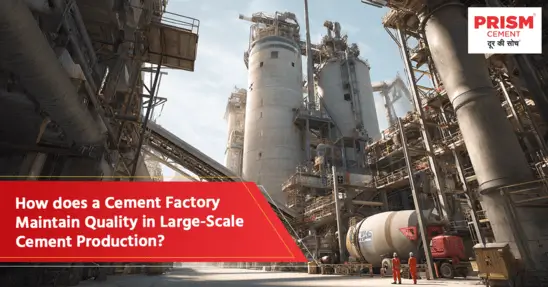If you're planning a construction project, you've probably heard the terms cement and concrete used interchangeably. However, they're not the same! While they work together to create strong and durable structures, they serve completely distinct purposes.
So, what exactly is the difference between cement and concrete? Why does one need the other? And which cement is best for concrete? Let’s clear up the confusion with this simple and straightforward guide, brought to you by Prism Cement—your trusted source for high-quality construction cement and cement solutions.
What is Cement?
Cement is a fine powder that acts as a binding agent. When mixed with water, it forms a paste that holds materials like sand, gravel and aggregates together. This makes it a crucial ingredient in concrete and mortar, which are used in almost every construction project.
There are different types of construction cement, each designed for specific needs:
- Ordinary Portland Cement (OPC) – The most common type, used in general construction
- Portland Pozzolana Cement (PPC) - Manufactured by blending ordinary portland cement with pozzolanic materials like fly ash or volcanic ash
- Composite Cement – A blend of multiple materials, designed for extra durability and sustainability
- High-Strength Cement – Designed for heavy-duty structures like bridges and skyscrapers
But here’s the important thing to remember—cement alone cannot be used to build a structure. It must be combined with other materials to create concrete.
What is Concrete?
While cement is an ingredient, concrete is the final product used in construction. It’s a mixture of cement, water, sand, gravel and other aggregates that harden into a rock-solid material.
One of the most used forms of concrete is ready mix concrete, which is pre-mixed in factories and delivered to construction sites. This ensures consistency, quality and efficiency—making it a top choice for builders.
Since different projects require different strengths, contractors must choose the right cement solutions when making concrete. For instance, if you're building a high-rise structure, you'll need high-strength cement. If you’re constructing in a humid area, water-resistant cement will be your best bet.
Key Differences Between Cement and Concrete
| Feature | Cement | Concrete |
|---|---|---|
| Definition | A binding material used in construction | A mix of cement, water, sand and aggregates |
| Purpose | Used to bind materials together | Forms the final structure in buildings and roads |
| Strength | Not strong on its own | Becomes incredibly strong once hardened |
| Uses | Making concrete, mortar and plaster. | Foundations, roads, buildings, bridges, etc. |
| Durability | Can crack if used alone | Durable; Resistant to wear and pressure |
If you're wondering which cement is best for concrete, it depends on the project. For large-scale structures, high-strength cement is ideal, while composite cement is a great choice for sustainable building.
The Role of Cement in Concrete
Think of cement as the "glue" in concrete. It reacts with water in a process called hydration, creating a hard, stone-like material that binds everything together. Without cement, concrete wouldn’t be able to hold its shape or strength.
That’s why choosing high-quality construction cement is crucial. At Prism Cement, we provide top-notch cement products to ensure that every batch of ready mix concrete performs at its best.
Common Myths and Misconceptions
Myth #1: Cement and Concrete Are the Same Thing
Truth: Cement is just an ingredient in concrete, not the final product.
Myth #2: You Can Use Cement Alone to Build a Structure
Truth: Cement without aggregates will crack and fail under pressure. Concrete is needed for strength.
Myth #3: More Cement Means Stronger Concrete
Truth: Adding too much cement can actually weaken concrete by making it more brittle. The right balance is key.
Myth #4: All Cement Is the Same
Truth: Different projects require different cement solutions, such as water-resistant cement for wet conditions or high-strength cement for heavy loads.
Applications & Best Practices
Knowing when to use cement and when to use concrete is crucial for building strong and lasting structures. Here are some best practices:
- Use the Right Cement for the Job – For ready mix concrete, choose high-strength cement for durability. If you're working in a humid area, opt for water-resistant cement.
- Follow the Right Mix Ratio – The ideal cement-to-concrete ratio depends on the project. Too much cement can weaken the mix, while too little won’t provide enough binding strength.
- Allow Proper Curing Time – Concrete gains strength over time. Proper curing ensures maximum durability.
- Choose Quality Materials – Whether you're using composite cement, ready mix concrete, or traditional construction cement, always go for trusted brands.
Conclusion
Understanding the difference between cement and concrete is essential for any construction project. Cement is the binding agent, while concrete is the strong, final structure that builders rely on. One cannot work without the other!
So, if you’re wondering which cement is best for concrete, the answer depends on your specific needs. Whether it’s high-strength cement for skyscrapers or water-resistant cement for flood-prone areas, choosing the right material is key.
At Prism Cement, we provide high-quality cement solutions for all construction needs. Contact us today to find the perfect construction cement for your project!
Frequently Asked Questions (FAQ)
Q1. How is cement different from concrete in terms of composition?
Answer: Cement is a fine powder made from limestone, clay and gypsum, while concrete is a mix of cement, sand, gravel and water, which hardens into a strong structure.
Q2. Can cement be used alone without mixing it with other materials?
Answer: No, cement alone is not strong enough. It needs aggregates like sand and gravel to form concrete, which is much more durable.
Q3. What are the main applications of cement vs. concrete?
Answer:
- Cement is used to make concrete, mortar and plaster.
- Concrete is used for foundations, roads, buildings and bridges.
Q4. Why does concrete require cement, but cement does not require concrete?
Answer: Cement is an ingredient used to make concrete, but concrete is a final building material. Without cement, concrete wouldn't have the strength to hold everything together.
Q5. Which is stronger, cement or concrete, and why?
Answer: Concrete is much stronger than cement because it contains aggregates like sand and gravel, which add durability and strength.




